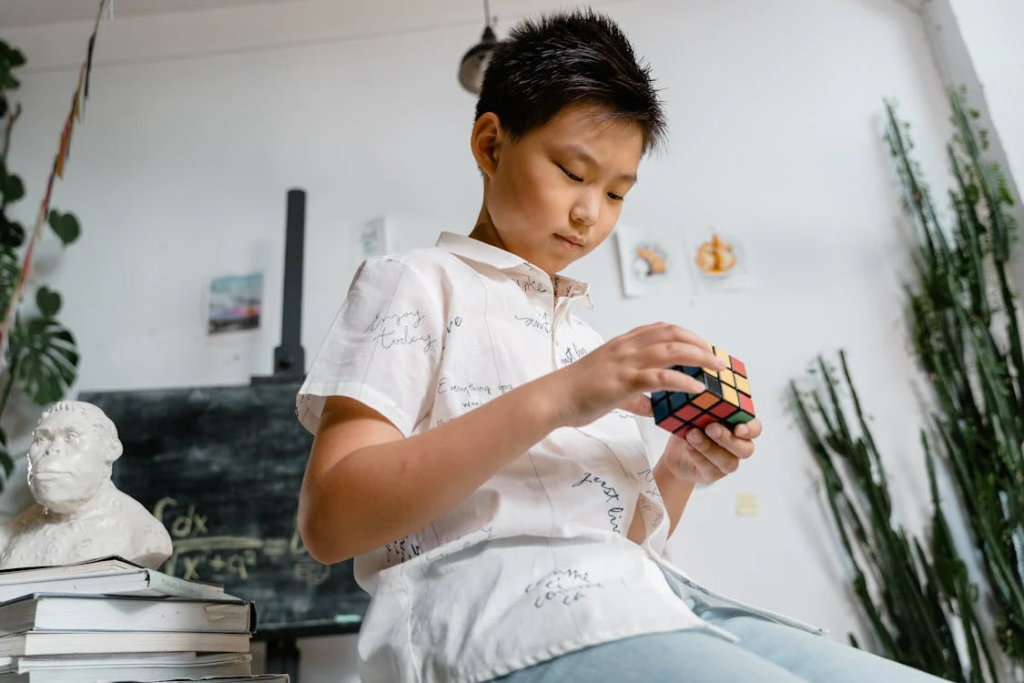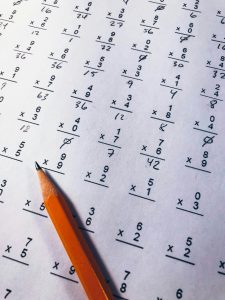Math Puzzles That Involve Real-Life Scenarios for Practical Learning

Are you a parent searching for effective ways to make math more engaging and relevant for your child? Do you want to boost their problem-solving skills and critical-thinking abilities? Look no further! Math puzzles that incorporate real-life scenarios provide a powerful tool for practical learning. These puzzles enhance mathematical skills while encouraging creativity, logical reasoning, and critical thinking.
Types of Math Puzzles Involving Real-Life Scenarios
Shopping and Budgeting Puzzles
One practical skill that children need to develop is financial literacy. Shopping and budgeting puzzles simulate everyday financial decisions and help learners understand budgeting and cost management.
Example Puzzle:
A shopper has a budget of $50. If they buy three shirts at $15 each and a pair of shoes for $20, how much money do they have left?
Solution:
Total cost of shirts: 3 × 15 = 45
Total spent: 45 + 20 = 65
Money left: 50 – 65 = -15 (over budget)
These puzzles teach the importance of budgeting and wise financial decision-making while highlighting the consequences of overspending.
Distance and Travel Time Puzzles
Calculating distances, speeds, and travel times is an essential skill in daily life. Distance and travel time puzzles help learners understand these concepts through relatable scenarios.
Example Puzzle:
If a car travels at a speed of 60 miles per hour, how long will it take to cover 180 miles?
Solution:
Using the formula:
Time = Distance / Speed
Time = 180 / 60 = 3 hours
These puzzles help students understand concepts such as speed, distance, and time, which are applicable in travel and commuting contexts.
Cooking and Recipe Adjustments
Cooking-related puzzles allow learners to practice fractions and proportions while engaging in culinary arts.
Example Puzzle:
A recipe requires 2½ cups of flour to make 12 cookies. How much flour is needed for 30 cookies?
Solution:
Convert 2 1/2 cups to an improper fraction: 5/2 cups.
Flour per cookie = (5/2) / 12 = 5/24 cups.
For 30 cookies: (5/24) × 30 = 6.25 cups.
This puzzle helps students understand fractions and proportions, emphasizing practical math applications in cooking.
Time Management Puzzles
Effective time management is crucial for academic and personal success. These puzzles teach scheduling and time allocation.
Example Puzzle:
If a student spends 1½ hours on homework and 45 minutes on chores, how much time do they have left if they plan to study for a total of 4 hours?
Solution:
Convert everything to hours:
Homework: 1.5 hours
Chores: 0.75 hours
Total spent: 1.5 + 0.75 = 2.25 hours.
Time left: 4 – 2.25 = 1.75 hours.
This puzzle emphasizes the importance of time management in balancing daily activities.
Work and Productivity Puzzles
Understanding work rates and productivity is essential in various jobs or tasks.
Example Puzzle:
If a factory produces 1000 widgets in 8 hours, how many widgets does it produce per hour?
Solution:
Using the formula:
Widgets per hour = Total widgets / Total hours
Widgets per hour = 1000 / 8 = 125 widgets per hour.
These puzzles highlight productivity and efficiency concepts, which are vital in real-world work settings.
Benefits of Using Real-Life Math Puzzles
Relevance
Students see how math connects to their daily lives, making it more meaningful and engaging.
Engagement
Real-life math puzzles make learning enjoyable and motivate students to solve problems actively.
Problem-Solving Skills
Puzzles challenge students to think critically, enhancing their ability to tackle complex issues.
Practical Application
These puzzles reinforce the importance of mathematics, as they show students how math plays an integral role in everyday activities, from managing finances to making decisions.
Skill Development
These puzzles foster essential skills like critical thinking, logical reasoning, and analytical abilities that are transferable across subjects and careers.
Key Types of Math Puzzles and Their Benefits
|
Puzzle Type |
Real-Life Context |
Skills Developed |
Example Scenario |
|---|---|---|---|
|
Shopping & Budgeting |
Financial literacy |
Budgeting, cost management |
Calculating total expenses and savings |
|
Distance & Travel Time |
Commuting and travel planning |
Time management, speed calculation |
Determining travel duration |
|
Cooking & Recipe Adjustments |
Culinary arts |
Fractions, proportions |
Adjusting recipes for different servings |
|
Time Management |
Daily routines |
Scheduling, time allocation |
Allocating time for tasks |
|
Work & Productivity |
Workplace efficiency |
Productivity analysis, problem-solving |
Calculating output per hour |
Conclusion
Math puzzles that involve real-life scenarios provide an excellent opportunity for practical learning. From budgeting to cooking and time management, these puzzles demonstrate how math is essential in everyday life. They not only improve mathematical skills but also foster critical thinking, logical reasoning, and creativity, preparing learners for real-world challenges.
Franchise Opportunity
If you’re interested in the benefits of a franchise, particularly in Abacus learning centres, consider partnering with SIP Abacus India. As an Abacus franchise owner, you’ll have access to their world-class teaching methods that enhance children’s mental abilities and critical thinking. The Abacus franchise benefits go beyond just educational value; joining SIP Abacus can unlock a child’s full potential while providing you with a rewarding business opportunity.
With the advantages of an Abacus franchise, you’ll be part of a successful network dedicated to skill development. By engaging with real-life math puzzles, you can empower your child with skills that extend beyond the classroom, fostering confidence and a lifelong love for learning. Encourage them to explore these puzzles and watch them transform into problem-solvers and critical thinkers!



